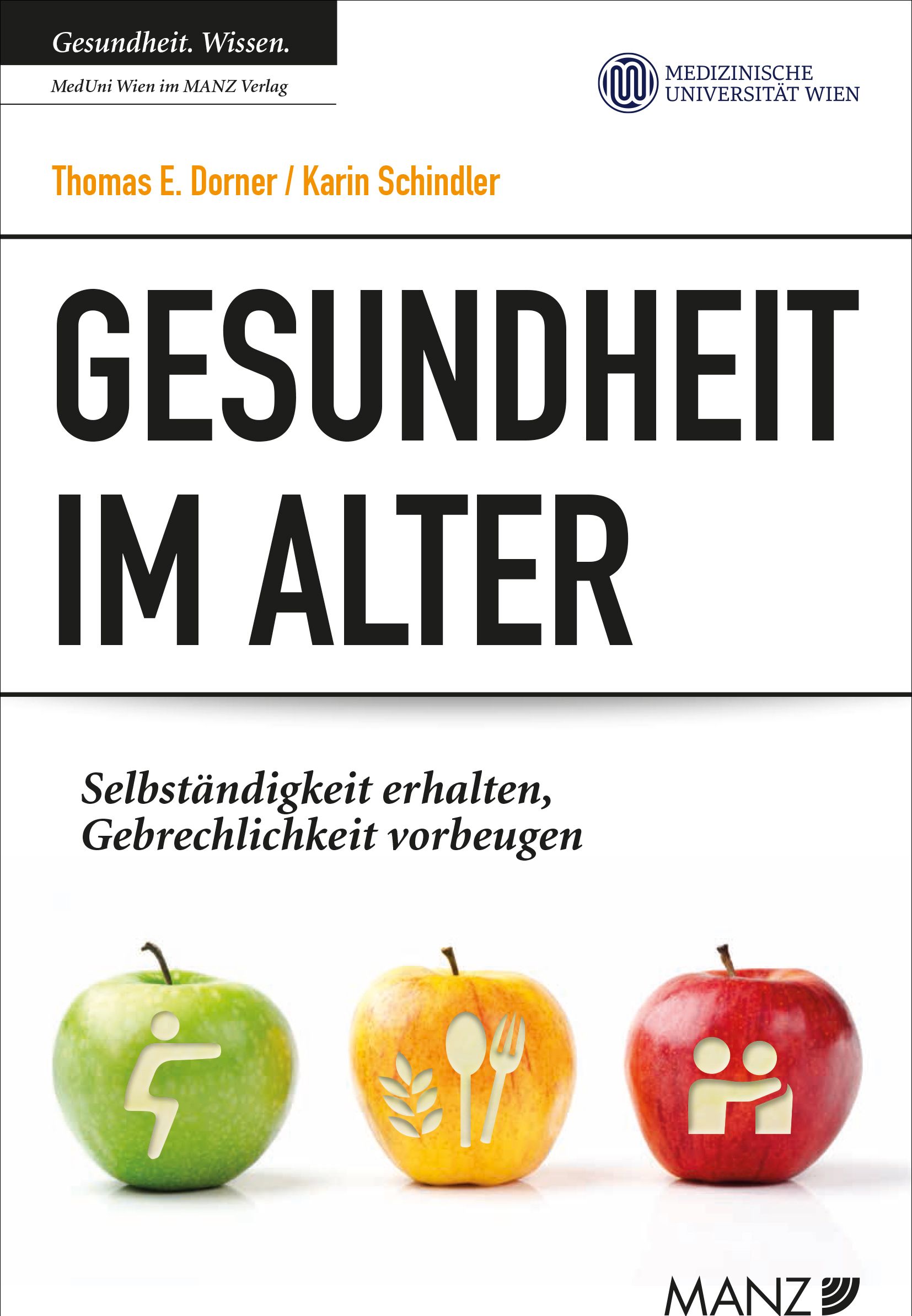
(Vienna, 10 July 2017) An exercise programme developed by MedUni Vienna to rehabilitate the frail and elderly can be remarkably successful and has received numerous awards. It appears that physical exercise and discussing nutrition can have a beneficial impact upon physical condition. The "social element" is particularly important. A self-help guide on this subject – how to be healthy and to actively enjoy life in old age – has now been published as the result of a collaboration between MedUni Vienna and the publishing house MANZ Verlag: "Health in Old Age" by social medicine expert Thomas Dorner and nutritionist Karin Schindler from MedUni Vienna.
Around 11% of over 65-year-olds in Austria are what is termed "frail". 41% are in the pre-stages. Frailty is a geriatric syndrome comprising a combination of sarcopenia (low muscle mass and/or muscle strength), malnutrition (under-nourishment, over-nourishment or malnourishment) and chronic inflammation and it is associated with huge health problems for those affected. Prevention programmes, consisting of a combination of social support and nutritional and exercise interventions, can prevent malnutrition and frailty and relieve isolation and loneliness, especially for those who live alone and hardly ever go out.
This is the subject of the recently published guide, "Health in Old Age": The two authors from the Medical University of Vienna explain scientifically, but in an easy-to-read and understandable style, the relationships between the ageing process, lifestyle and physical activity and provide many useful tips, including an extensive recipe section and detailed descriptions of physical exercises to do at home. Conclusion: a lot can be done to prevent frailty!
Successful programme
The book is based on the "Healthy for Life" project initiated by MedUni Vienna in collaboration with the Vienna Hilfswerk [voluntary organisation] and the Austrian Sports Association and funded by the Vienna Science and Technology Fund. In this programme, volunteers (so-called "buddies") visited frail and malnourished people (average age 83 years) in their homes twice a week over a 12-week period. The specially-trained laypeople performed exercises (strength training using a Thera band) with the elderly people and talked about nutrition. An active control group was also visited but no nutritional or exercise interventions took place.
After 12 weeks, there was found to be a clear improvement in frailty status and risk of malnutrition. The prevalence of malnutrition fell by 25% in the exercise and nutrition group and their frailty status by 17%. What was remarkable was that the control group, who only received social support, also showed improvements (23% reduction in malnutrition and 16% reduction in frailty status).
Preventing frailty
"We hope that our book will help to prevent people becoming frail and malnourished in the first place," says Thomas Dorner. "Especially in old age, healthy nutrition and physical activity are important for promoting health and well-being and for maintaining independence. In order to ensure success, it is important that people receive a lot of social support from family or friends and have an active social life."
"Health in Old Age, Maintaining Independence, Preventing Frailty."
Thomas E. Dorner / Karin Schindler, MANZ Verlag in collaboration with MedUni Vienna.
ISBN 978-3-214-08467-7. 2017, 200 pages, €21.90.
Link to online ordering: goo.gl/HqX7H2 and www.manz.at/gesundheit-wissen